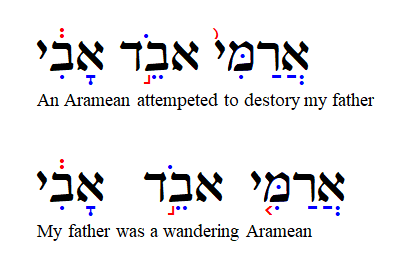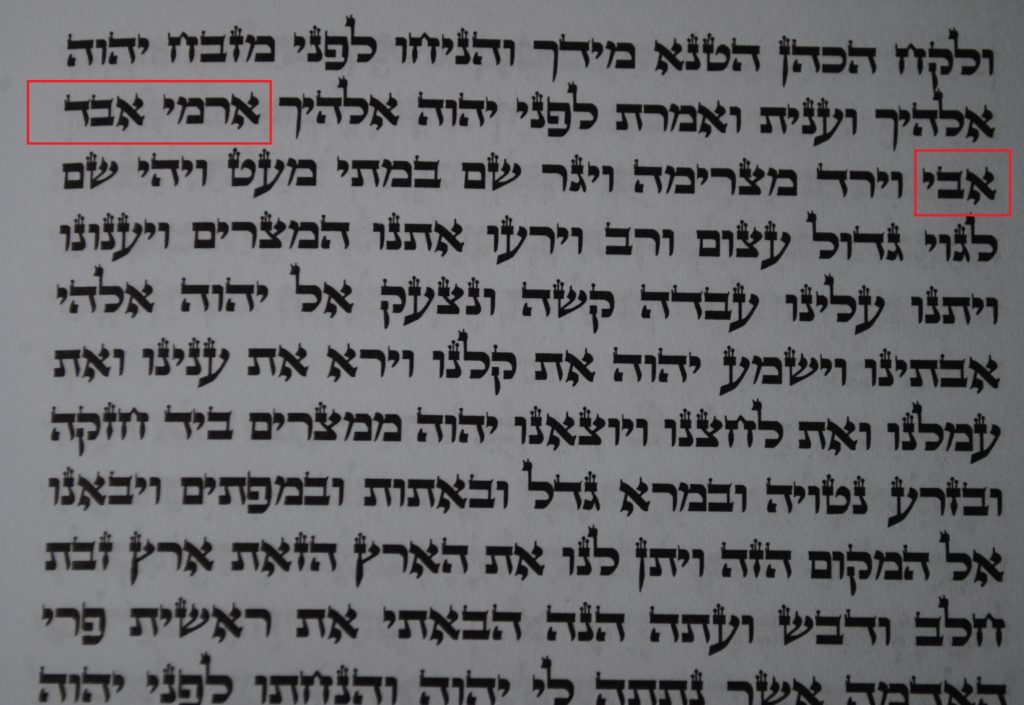One of the aspects of the Biblical literature that I am very fond of is that is both familiar and unfamiliar at the very same time. If you have grown up in a community that values Biblical literature you have probably at some point read stories from the book of Genesis. You may even at least have some knowledge of some of the more famous stories and characters in Genesis like Adam and Eve, Noah, Abraham, Joseph, and so on. Here below is one example of how a close reading of a familiar text, might actually reveal an unfamiliar one.
Gen 18:1 states that God appeared to Abraham, who immediately looked up and saw three men approaching. The first difficulty centers on the precise relationship between these four characters; was God one of the three, symbolized by all three, or a fourth visitor?
The answer to this question will affect how one understands the use of singular and plural verbs and pronouns throughout the chapter.
Thus verses 3-4, ‘im na’ masa’ti hen be-‘eneka, ‘al na’ ta’abor me-‘al ‘abdeka, “ I have found favor in your [sing.] sight, do not pass [sing.] your [sing.] servant by,” which is addressed to one individual, differs from the plural usages in the subsequent yuqqah na’ me’at mayim we-rahasu raglekem, “Let some water be brought and wash [pl] your [pl.] feet.”
Also, one must establish the relationship between God’s appearance in verse 1, the anonymous comment in verse 10, God’s speaking in verse 13, and the ambiguous use of ‘dny, traditional vocalized as a divine name but equally readable as a reference to the three guests, even in some masoretic traditions. These concerns run through Genesis 18 and 19, and their resolution has a profound impact on how one interprets the entire narrative, even on how parts of it are vocalized.
Levy, B, Barry, FIXING GOD’S TORAH; the Accuracy of the Hebrew Bible Text in Jewish Law Oxford University press pg.82

